UWE Bristol part of research investment into national land use transformation

UWE Bristol is part of a first-of-its-kind consortium of 34 leading research and stakeholder organisations which has been established to help all four UK administrations address land use and agriculture as a major greenhouse gas emitting sector.
The “Land Use for Net Zero” (LUNZ) Hub, co-led led by The James Hutton Institute and the University of Leicester, with £6.5 million funding from UK Research and Innovation, will provide UK and devolved nations timely evidence around land use, from renewable energy to soil carbon and green finance, to help drive the land transformations needed to achieve net zero by 2050.
It will also play a pivotal role in helping to communicate more widely the critical importance of land and how it’s used as a major carbon sink or source.
Agriculture and land use have a major impact on greenhouse gas (GHG) emissions, as well as a wide range of other environmental, societal and economic outcomes, but progress towards decarbonisation is lagging behind other sectors.
The declaration recently announced at COP28 on sustainable agriculture, resilient food systems and climate action states the UK Government’s intent to act on land use and climate change by increasing public financial support and scaling science-based solutions. LUNZ will be a key conduit for these actions.
Achieving the transformational change in land management needed will depend on government access to world-class research and innovation and a novel approach to collaboration across a variety of critical stakeholders.
Hub co-lead of the winning Consortium, Professor Lee-Ann Sutherland (The James Hutton Institute), explained:
“The science behind land use is highly complex. It is influenced by a range of economic, social and environmental factors, and complicated further by a changing evidence base, novel market forces, the emergence of new data and models, and disruptive technologies such as artificial intelligence. Our aim is to bridge the gap between researchers and policy makers and our work will be focused on meeting specific policy-maker needs, giving them the evidence they need in the format and timeframe they need it.
“Our Consortium has developed a series of innovative mechanisms to do just that – an Agile Policy Centre, Net Zero Futures Platform, and Creative Methods Lab – each tailored to generate clear, robust answers to urgent questions.”
Equally novel is the approach to stakeholder participation in the Hub, as Hub Co-lead, Professor Heiko Balzter (University of Leicester), explained:
“Creating a fair, realistic path to Net Zero in the land use sector can only be achieved with the involvement of a wide range of stakeholders throughout the process– to provide their expertise, share the Hub’s outputs and ensure its proposals work in practice as well as theory.
“Our consortium reflects this – ranging from those at the cutting edge of climate change modelling to farmers groups, advisory organisations, non-governmental organisations and an arts collective.
“Their range and profile will ensure the Hub’s impact extends throughout society – so everyone can engage in land use transformation – from the food they buy to their holiday, housing and investment decisions.”
At the heart of the challenge is understanding how transformative change can be achieved and predicting the impact of proposed approaches against multiple environmental, societal and economic outcomes.
A central strand of the Hub’s approach will be the development of plausible and innovative net zero scenarios and associated pathways – novel tools based on advanced modelling methodologies that can predict the impacts of different policy interventions across a variety of metrics.
Angelina Sanderson Bellamy, Professor of Food Systems at UWE Bristol and Co-Investigator for LUNZ Hub, said:
“I’m excited to be a part of the LUNZ Hub Leadership team, ensuring that the LUNZ Hub is inclusive in everything we do, with a diversity of perspectives represented in supporting policymakers to determine how best to use our land in order to meet net zero, biodiversity and food security challenges.”
Related news

15 December 2025
UWE Bristol rises eleven places in People & Planet University League
UWE Bristol has risen to 14th in the People & Planet University League (UK), a jump of eleven places.

12 December 2025
UWE Bristol’s environmentally conscious and student-focused accommodation wins three awards
Purdown View, the world's largest certified Passivhaus student accommodation development, has been recognised at Property Week Student Accommodation Awards.

20 November 2025
UWE Bristol ranked among top 12 per cent of universities globally for sustainability
UWE Bristol has climbed over 400 places in the QS World University Sustainability Rankings 2026, which evaluates universities on a range of environmental and social impacts.

06 November 2025
UWE Bristol welcomes West of England Mayor for annual Green Week
Helen Godwin, Mayor of the West of England, visited UWE Bristol during its annual Green Week to see the sustainability-driven research, innovation and skills initiatives that are helping to power the growth of the region’s green economy.
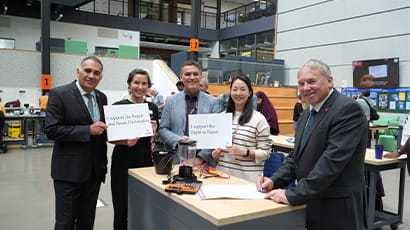
16 October 2025
UWE Bristol signs Repair and Reuse Declaration in commitment to sustainable initiatives
UWE Bristol is the first UK university to sign the Repair and Reuse Declaration as a whole institution, a call to legislators and decision makers to tackle climate change through greater repair and reuse support.

15 October 2025
UK food needs radical transformation on scale not seen since Second World War, new report finds
A new report from the Agri-Food for Net Zero Network+ finds urgent action on food is needed if the UK is to reboot its flagging economy, save the NHS billions, ensure national food security, and meet climate commitments.
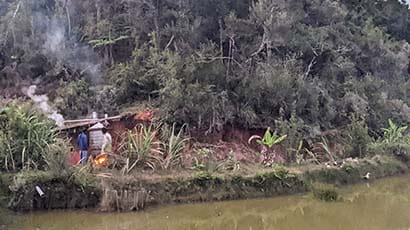
24 September 2025
UWE Bristol to help protect threatened forest in Madagascar in £800k project
UWE Bristol is a partner in a groundbreaking project awarded almost £800,000 in funding to protect one of Madagascar’s most precious and threatened forests.
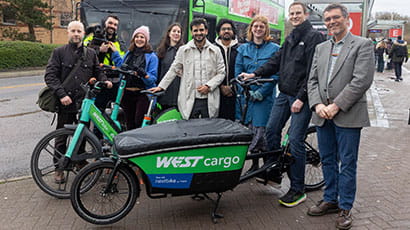
24 February 2025
WESTbusStop+ makes sustainable travel more convenient
A new WESTbusStop+ bringing together buses and other ways to travel has been officially opened at UWE Bristol’s Frenchay campus.
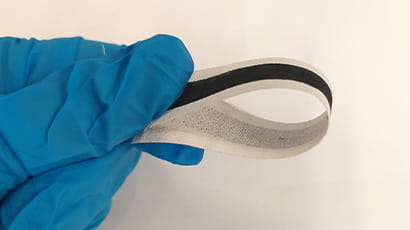
03 January 2025
Big leap forward for environmentally friendly ‘e-textiles’ technology
Research led by UWE Bristol and the University of Southampton has shown wearable electronic textiles (e-textiles) can be both sustainable and biodegradable.

28 November 2024
Work of UWE Bristol academics features in Government report on air quality measurement
Two UWE Bristol academics have made contributions to an influential Government report on the measurement of air pollution.
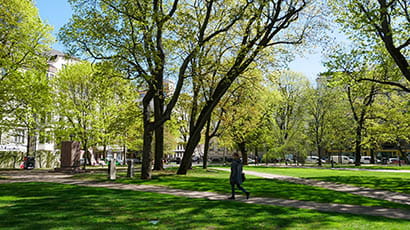
27 November 2024
Traffic noise reduces the stress-relieving benefits of listening to nature, study finds
Road traffic noise reduces the wellbeing benefits associated with spending time listening to nature, researchers have discovered.
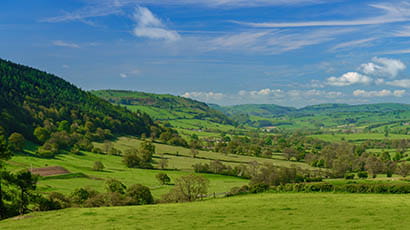
15 November 2024
Grasslands project led by UWE Bristol academic to support UK’s bid for net zero emissions
A UWE Bristol researcher will lead a £4.7 million project focused on the management of UK’s grasslands aimed at supporting efforts to achieve net zero emissions by 2050.






